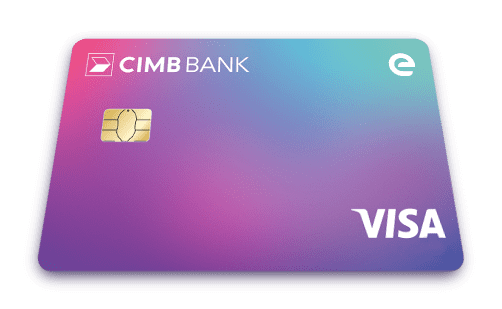{{tile.title}}
{{tile.description}}
{{tile.expiryDate}}





We will be right with you.
Planning for My Future
CIMB ❘ 4 Nov 2022
3 min(s) read
For many years, our minds have been planted with misunderstandings when it comes to loans and loan applications. Till this day, some people are scared of applying for a loan out of fear they'll be rejected.
However, the truth is that loans can be incredibly useful, and they’re not as mind-bogglingly complicated as one might initially assume.
Before we dive into the “why”, we have to talk about the “what”. In this case, what is collateral? To some, there may be an obvious answer to this question, however, that may not be the case for everyone.
Collateral, in the world of finance, is a valuable asset that the borrower pledges as security for a loan.
When you obtain a mortgage, your home acts as collateral for the loan, when you get a car loan, the vehicle is the collateral. A loan that is secured by collateral usually comes with a lower interest rate because, in the event of a default, the lender may seize the collateral as a means to recoup the loss.
But is it necessary to always have collateral? Well, actually no, it isn’t always necessary. Most loans, such as personal loan, don't usually require a collateral. This requirement very much depends upon the terms and conditions of the bank choice.
It can be rather discouraging and taxing when loans get denied or you just simply get lost in the process of acquiring one.
But what if we told you that the process is actually fairly simple? You’ll only have to go through these 5 simple steps:
Gather up the essential information and documents you need.
Fill out the application, be it via paper or electronically.
At this stage the credit department receives and evaluates the application.
Based on the evaluation, a decision is made.
Most loan funds begin upon the approval of the application.
The process from start to end only takes a few working days (even less for some fast-approving loan products), so you won't have to wait at the edge of your seat for your application result.
Before we get into the myth-busting, let’s explore the importance of having a healthy credit score. When a lender views your loan application, your credit score gives an insight into your ability to manage money. If you have a low credit score, the lender will typically presume that your ability to pay back the loan will also be hindered.
However, this isn’t the end. Depending on the banking institution you visit, you may be able to receive a loan. You can achieve this by working with your bank to find other means and documents that can beef up your potential for loan eligibility.
A common misconception amongst non-Muslims is that Islamic banking only serves Muslims, however, this is not true. Non-Muslims are welcome to take their business to Islamic banks and receive the same service and care as all other customers.
There are no restrictions placed upon non-Muslims who wish to acquire a loan from an Islamic bank. In fact, the values and ethical principles that make up Islamic finance are based on universality.
The difference between Islamic banking and conventional banking is that Islamic banking must be in accordance with Shariah law. It must also avoid activities such as ‘riba’ or ‘gharar’ (excessive uncertainty). For example, instead of charging an interest on the financing provided, Islamic banks give financing based on Musyarakah (partnership agreement) and will share any profit and loss.
To ensure a smooth and hassle-free loan acquiring process, it is tremendously important to stay informed and to discuss any and all details with a banking professional to understand the necessities needed before partaking in a loan.
Looking for loan or financing? Visit our product pages here.
This article is brought to you by CIMB as part of our ongoing efforts to raise the level of financial literacy among Malaysians. Financial knowledge and understanding are key to making well-informed and meaningful financial decisions towards positively improving welfare and well-being of communities. This is one of our many efforts to achieve CIMB’s purpose of advancing customers and society.
This link is provided for your convenience only and shall not be considered or construed as an endorsement or verification of such linked website or its contents by CIMB Group.
CIMB Group makes no warranties as to the status of this link or information contained in the website you are about to access.
Do you wish to proceed?


